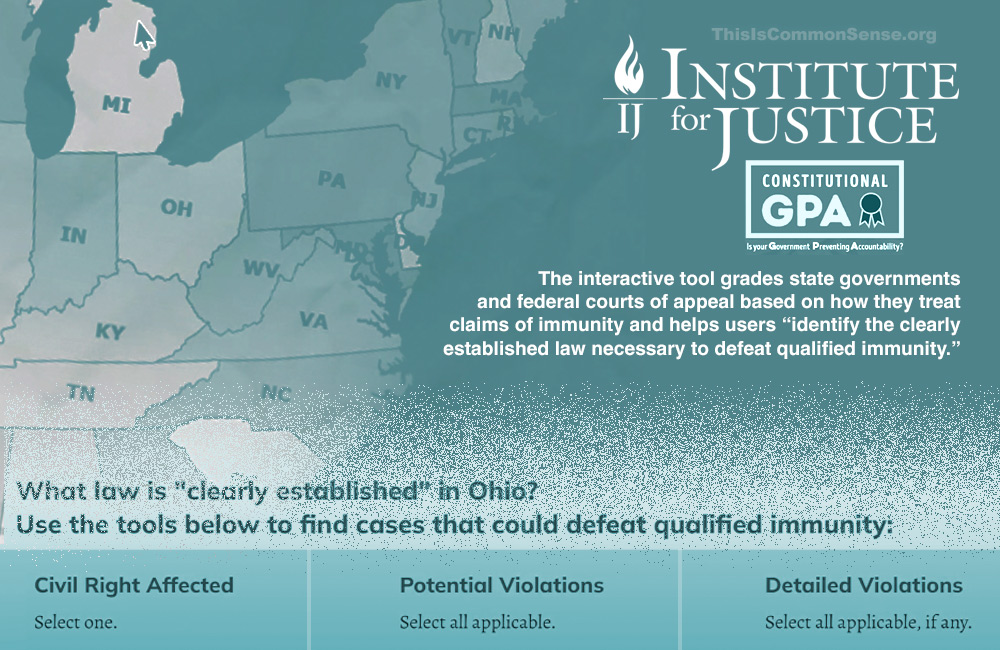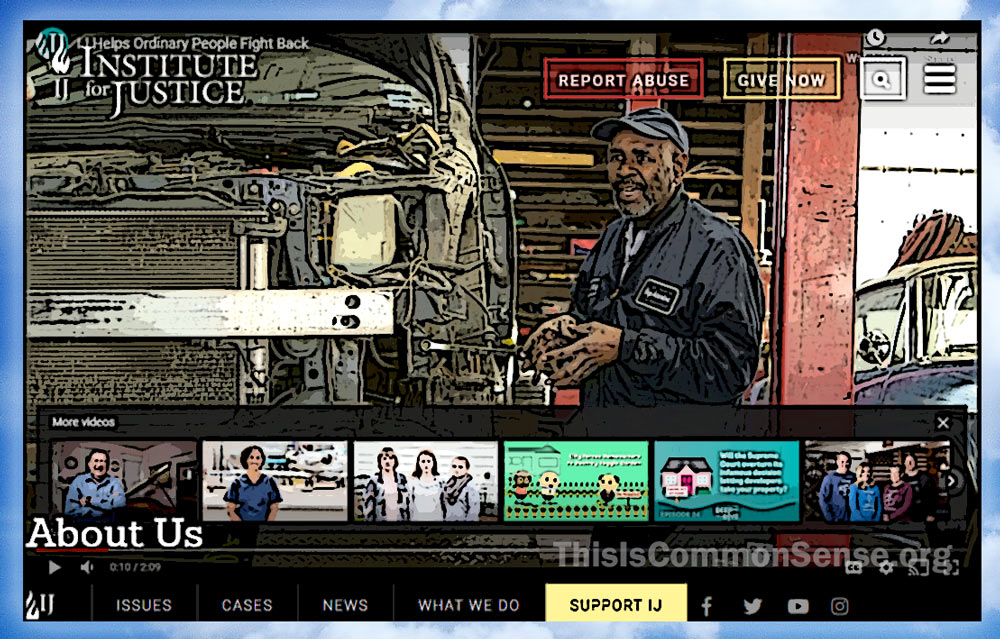Your constitutional rights have been violated. Now what?
One thing you can do is find out exactly where you stand with respect to what the Institute for Justice calls “clearly established law.” IJ has created a new research tool, the Constitutional GPA, to help lawyers and others identify relevant legal decisions.
The tool is designed to help users make government accountable despite the many confusing barriers to accountability. The “GPA” in the name refers both to “grade point average” and the question that is part of the tool’s graphic design: “Is your Government Preventing Accountability?”
Doctrines of qualified immunity and other special rules often prevent government officials who violate your rights from being held responsible unless courts have ruled otherwise with respect to specific rights-violating actions. Exactly what the law permits or proscribes can vary widely in different jurisdictions.
The interactive tool grades state governments and federal courts of appeal based on how they treat claims of immunity and helps users “identify the clearly established law necessary to defeat qualified immunity.”
IJ gives the example of a government employee’s unjustified search of your car supposing this takes place in Nevada. Answering a few simple questions enables one to search the Constitutional GPA database of hundreds of cases to find about a dozen pertinent legal decisions.
So if you find yourself on the wrongest of wrong ends of the State, watch the Institute’s YouTube video on how to use the new tool and try it out at the ij.org/gpa web page.
This is Common Sense. I’m Paul Jacob.
—
See all recent commentary
(simplified and organized)






